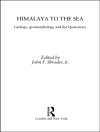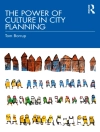The U.S. Environmental Protection Agency (EPA) has a mission and regulatory responsibility to protect human health and the environment. EPA’s pursuit of that goal includes a variety of research activities involving human subjects, such as epidemiologic studies and surveys. Those research activities also involve studies of individuals who volunteer to be exposed to air pollutants intentionally in controlled laboratory settings so that measurements can be made of transient and reversible biomarker or physiologic responses to those exposures that can indicate pathways of toxicity and mechanisms of air-pollution responses. The results of those controlled human inhalation exposure (CHIE) studies, also referred to as human clinical studies or human challenge studies, are used to inform policy decisions and help establish or revise standards to protect public health and improve air quality. Controlled Human Inhalation-Exposure Studies at EPA addresses scientific issues and provides guidance on the conduct of CHIE studies. This report assesses the utility of CHIE studies to inform and reduce uncertainties in setting air-pollution standards to protect public health and assess whether continuation of such studies is warranted. It also evaluates the potential health risks to test subjects who participated in recent studies of air pollutants at EPA’s clinical research facility.
Board on Environmental Studies and Toxicology & Committee on Assessing Toxicologic Risks to Human Subjects Used in Controlled Exposure Studies of Environmental Pollutants
Controlled Human Inhalation-Exposure Studies at EPA [PDF ebook]
Controlled Human Inhalation-Exposure Studies at EPA [PDF ebook]
Mua cuốn sách điện tử này và nhận thêm 1 cuốn MIỄN PHÍ!
Ngôn ngữ Anh ● định dạng PDF ● Trang 158 ● ISBN 9780309452502 ● Nhà xuất bản National Academies Press ● Được phát hành 2017 ● Có thể tải xuống 3 lần ● Tiền tệ EUR ● TÔI 7145273 ● Sao chép bảo vệ Adobe DRM
Yêu cầu trình đọc ebook có khả năng DRM












